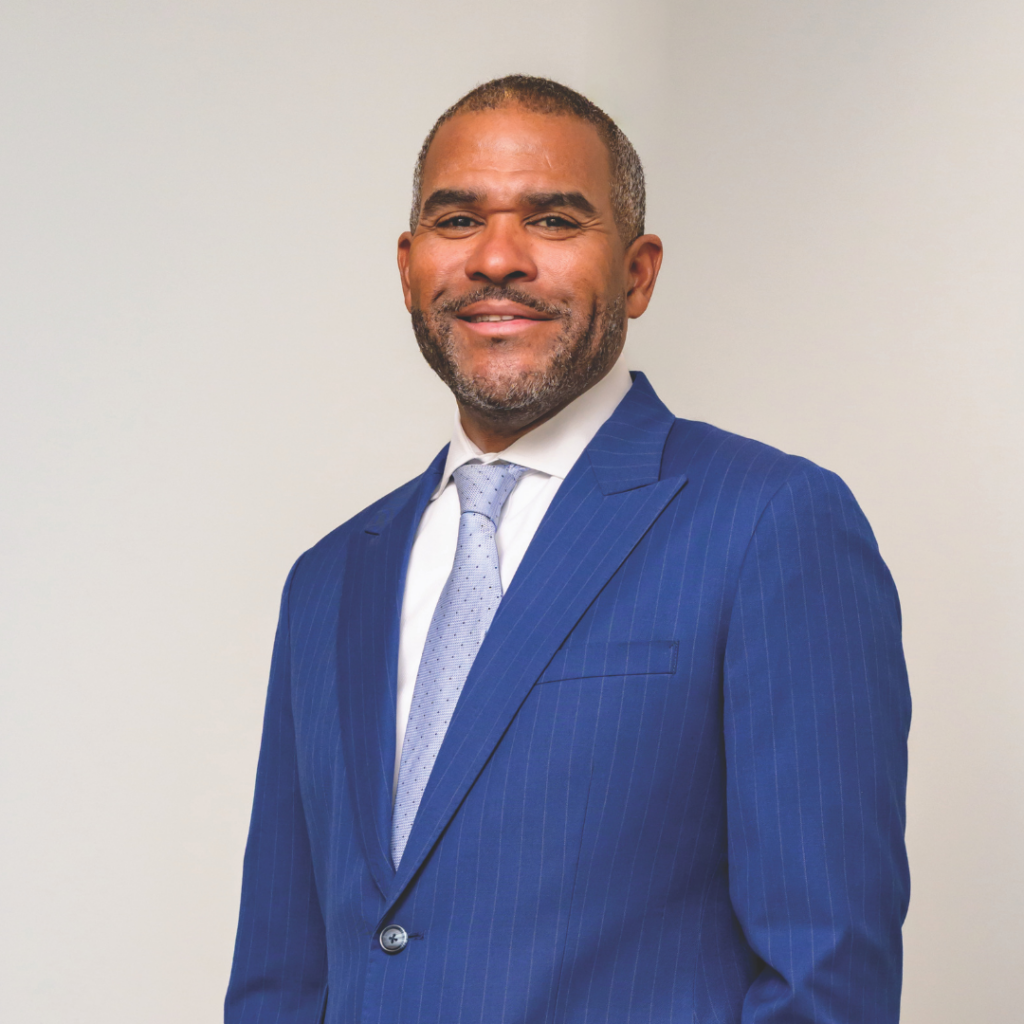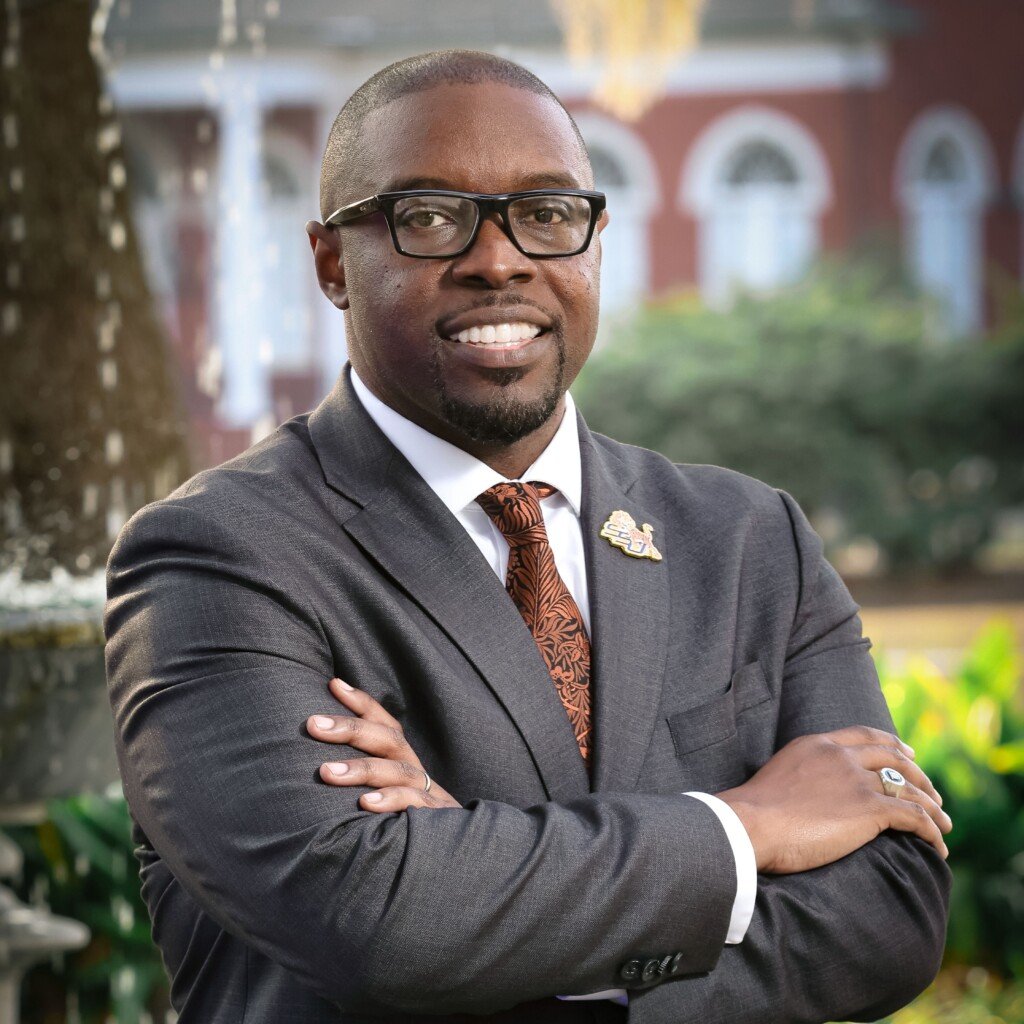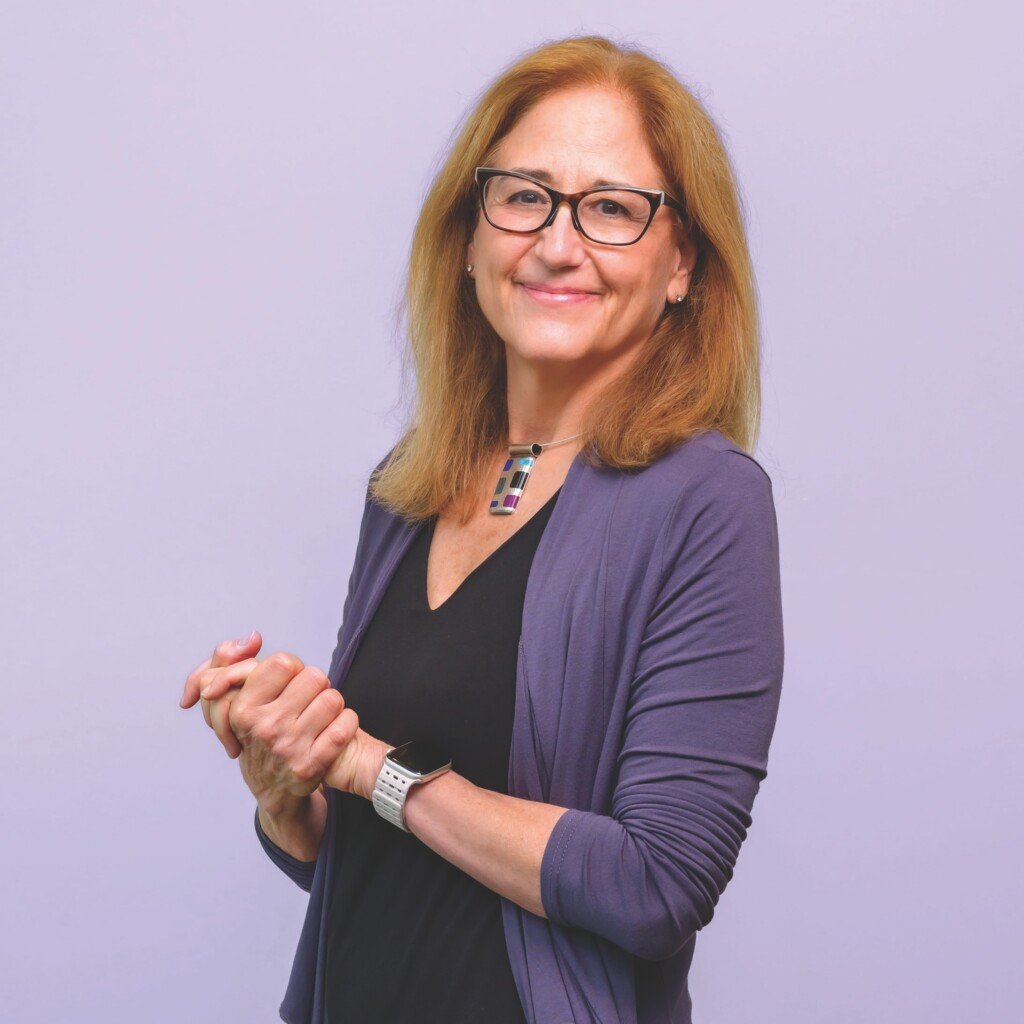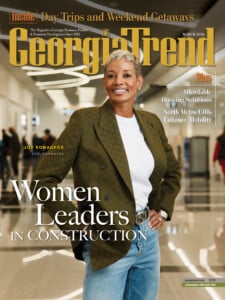Catching up with… Kevin James
President, Morris Brown College
Morris Brown College, a historically Black college founded by formerly enslaved people in 1881 in Atlanta, lost its accreditation in 2002 but regained it in a remarkable turnaround in 2022. The man who brought the reaccreditation over the finish line is Kevin James, president of Morris Brown College since 2019. These are edited highlights from an interview.
Morris Brown is the first HBCU to be restored after being unaccredited. How did you manage this?
I didn’t really know how bad off the school was until my very first day. We hadn’t paid our bills. We couldn’t make payroll. Debtors were threatening to cut off our lights and our water.
I found out very quickly that people didn’t believe what I said; people only believed what they saw. So I started using social media to overshare what we were doing at Morris Brown College, very basic things like, if we were painting the wall, I would take a picture of it, post it on social media and say, “Hey, everybody, look, we’re painting the wall.” If I was able to get a meeting with a city leader, I would take a picture with the person and post it on social media and say, “Hey, look, everybody, I’m meeting with the mayor.”
Once we started getting that momentum and people started to believe, I was able to rally supporters to raise money and build our enrollment and get our accreditation back. We did this initially with the help of two internal stakeholders: No. 1, the Morris Brown College alumni and No. 2, the AME Church. We were founded by the African Methodist Episcopal Church. Now that we have shown the world that Morris Brown is stable and under good leadership, we are trying to take the institution to the next level, and that’s going to take the help of philanthropists and corporations and other donors to support us financially.

 Why is it important for a college to be accredited?
Why is it important for a college to be accredited?
 Accreditation is that standard, that gold stamp that says that this institution is one of quality. Not to mention, if you’re not accredited, you do not have access to federal financial aid. And students, all students, but especially students of color, absolutely need to be able to take out student loans and receive grants and other funding and resources to be able to pay for college.
Accreditation is that standard, that gold stamp that says that this institution is one of quality. Not to mention, if you’re not accredited, you do not have access to federal financial aid. And students, all students, but especially students of color, absolutely need to be able to take out student loans and receive grants and other funding and resources to be able to pay for college.
 When you started as president in 2019 there were 20 students. How many are there today?
When you started as president in 2019 there were 20 students. How many are there today?
 As of today, we have about 430 students. I don’t want to grow too fast. In our new five-year strategic plan, we outlined that we want to double our enrollment from 400 students to 800 students over the next five years.
As of today, we have about 430 students. I don’t want to grow too fast. In our new five-year strategic plan, we outlined that we want to double our enrollment from 400 students to 800 students over the next five years.
 In 2022 you said that a goal is for all Morris Brown students to graduate debt-free. Is that still a goal?
In 2022 you said that a goal is for all Morris Brown students to graduate debt-free. Is that still a goal?
 Yes, the goal is that our students graduate with little to no debt. Morris Brown is the most affordable HBCU in the city of Atlanta at $4,250 a semester, $8,500 a year. About 75% of our students are Pell Grant eligible, and that’s money that doesn’t have to be paid back. If you max out a Pell at $6,800 and our tuition is $8,500, then if you’re taking out a loan, it’s for a very small amount. My goal as president is to partner with major companies and organizations to potentially do gap scholarships for students so they don’t have to take out loans.
Yes, the goal is that our students graduate with little to no debt. Morris Brown is the most affordable HBCU in the city of Atlanta at $4,250 a semester, $8,500 a year. About 75% of our students are Pell Grant eligible, and that’s money that doesn’t have to be paid back. If you max out a Pell at $6,800 and our tuition is $8,500, then if you’re taking out a loan, it’s for a very small amount. My goal as president is to partner with major companies and organizations to potentially do gap scholarships for students so they don’t have to take out loans.
 Are HBCUs important today and, if so, why?
Are HBCUs important today and, if so, why?
 Yes. I say this very boldly. There would be no Black middle class if not for historically Black colleges and universities. No other organization in the world affects upward social mobility for Black and brown people like historically Black colleges and universities.
Yes. I say this very boldly. There would be no Black middle class if not for historically Black colleges and universities. No other organization in the world affects upward social mobility for Black and brown people like historically Black colleges and universities.
HBCUs only account for about 3% of colleges and universities, yet HBCUs graduate 20% to 25% of Black college graduates. When you look at all of the statistics, 80% of Black [federal] judges [and] 50% of teachers [attended HBCUs].
These institutions are so extremely important. These institutions have proven time and time again that we have done more with less. We receive less funding, we receive less support, yet we outpunch our weight when you talk about what we do regarding educating Black and brown people. HBCUs are needed more now than ever before. 






